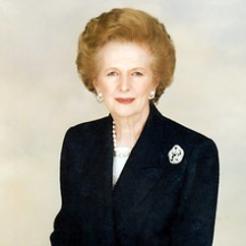Baroness Thatcher, who died yesterday morning after suffering a stroke, was a patron of Alzheimer’s Research UK and president of the British Forces Foundation.
She also supported the Raisa Gorbachev Foundation, a cancer charity which was founded by former Soviet leader Mikhail Gorbachev following the death of his wife Raisa from leukaemia in 1999.
But possibly her biggest contribution to the charity sector was her government’s decision to changes the rules on the charitable covenant – the precursor to gift aid – in the early 80s. At the time, the rules stated that a donor would have to commit to donate to a charity for seven years before their gifts became eligible for tax relief.
According to official papers published recently under the 30-year rule, Thatcher thought this was unreasonably long and favoured reducing the period to three years in order to boost public donations. In the Budget of 1980 the time period was reduced to four years.
The British Forces Foundation issued a statement online today to say it was “profoundly saddened” to hear of Thatcher’s death.
Its director Mark Cann said: “We are immensely proud to have had Baroness Thatcher as our president from the beginning of the charity’s inception in 1999.
“She was an active, interested and involved president and was always willing to attend our events whether it be a fundraising ball or small private dinner.
“I was lucky and privileged to have enjoyed many humorous and inspiring moments with her on many occasions. I regularly briefed her on the work of the BFF and was always grateful for her wise counsel and encouragement."
Lady Thatcher was also a patron of Alzheimer’s Research UK since 2001. Her daughter Carol revealed that her mother had been diagnosed with dementia in 2008.
Rebecca Wood, chief executive of Alzheimer’s Research UK, said: “The loss of Baroness Thatcher will resonate across the world, but in particular with the 820,000 people living with dementia in the UK.
"Irrespective of personal politics, few would dispute Lady Thatcher’s profound influence, the power of her presentation and strength of her convictions. That dementia could affect such a forceful personality is a lesson that this cruel condition does not discriminate.
“Thanks to Lady Thatcher, we have made inroads with our research to defeat dementia. The answers will come too late for her, but they will come, and this will be another important part of our collective memory of her life and work.”
The Margaret Thatcher Charitable Trust was a grantmaking organisation that was registered in 1988 and removed from the Register of Charities in 2003.
The Margaret Thatcher Foundation was formed in 1991 to advance the cause of political and economic freedom, but is not a registered charity.
Lady Thatcher, the UK's only female Prime Minister, died yesterday (8 April) aged 87. She had been unwell for a few years since suffering a series of strokes and had withdrawn from public life for the last ten years or so.
Barnardo's charity shop in Brixton had its window smashed by revellers celebrating Thatcher's passing last night.









